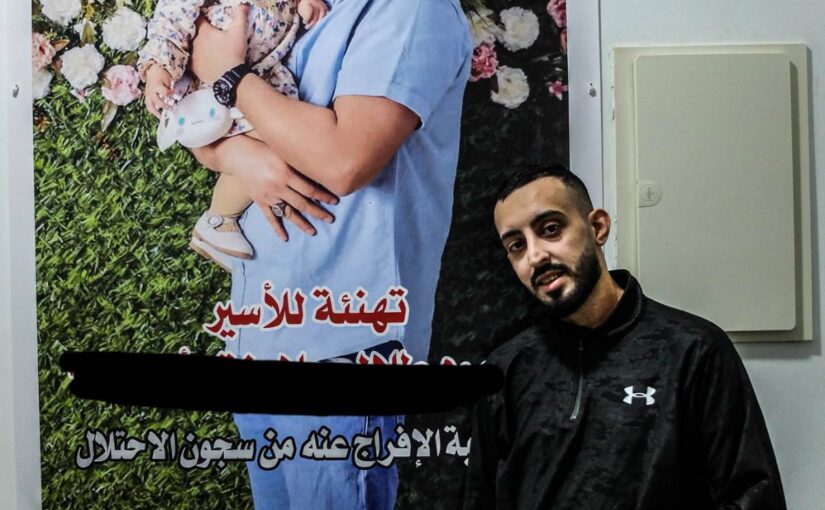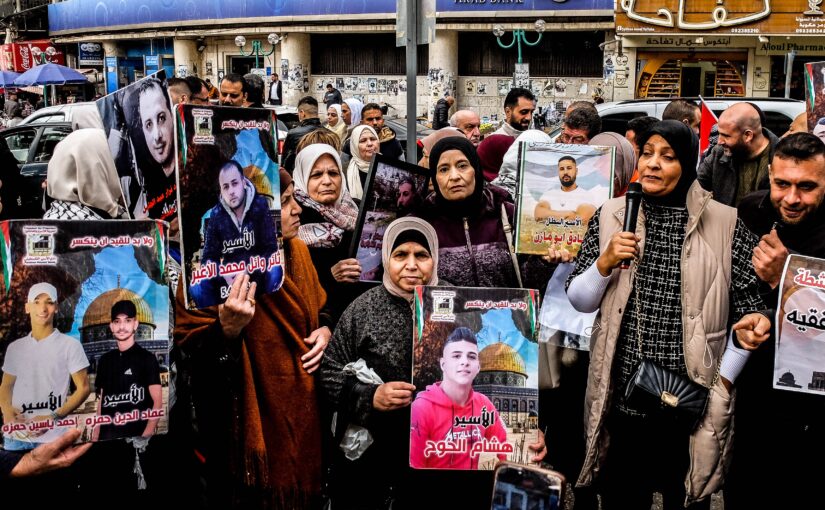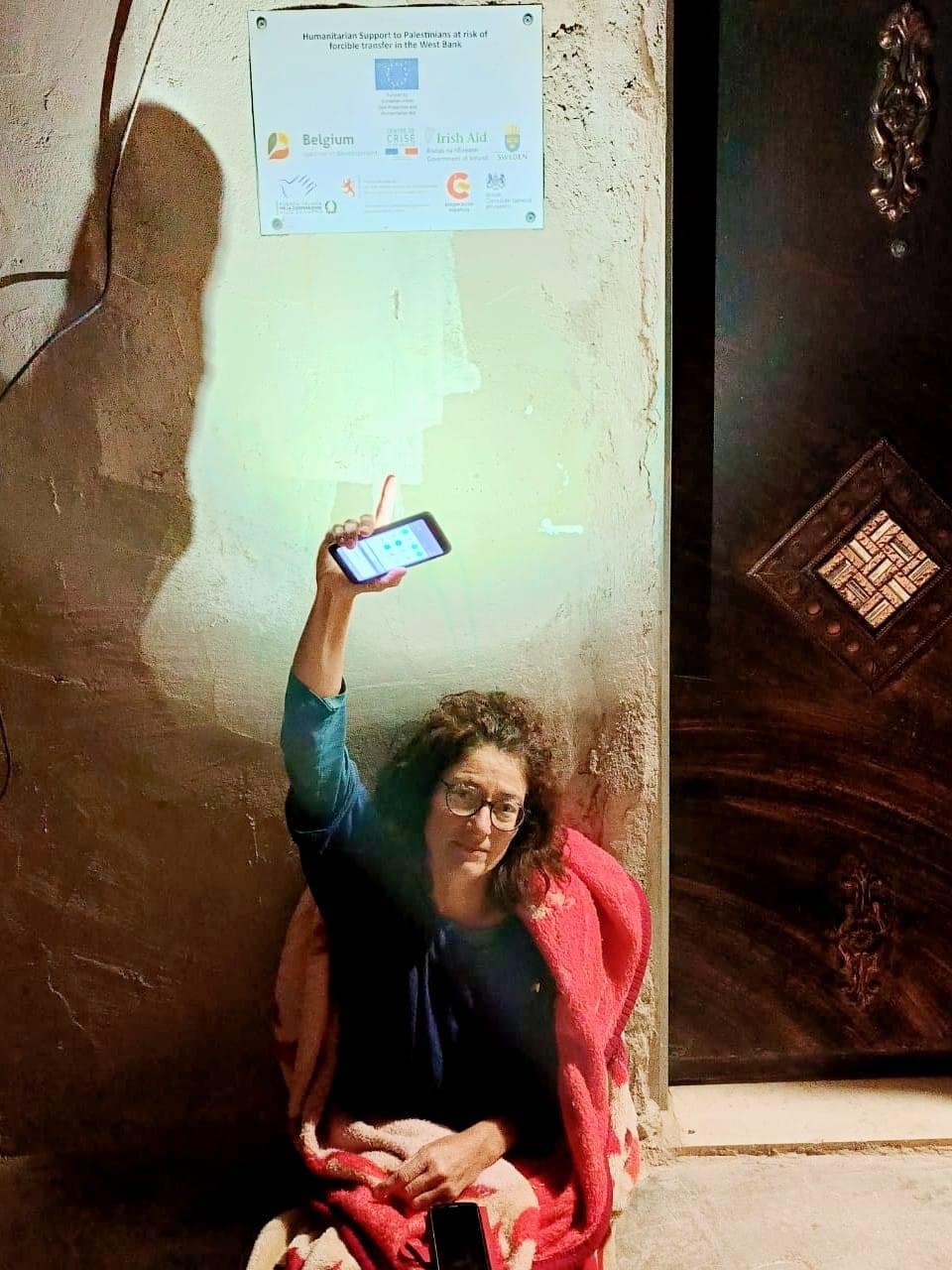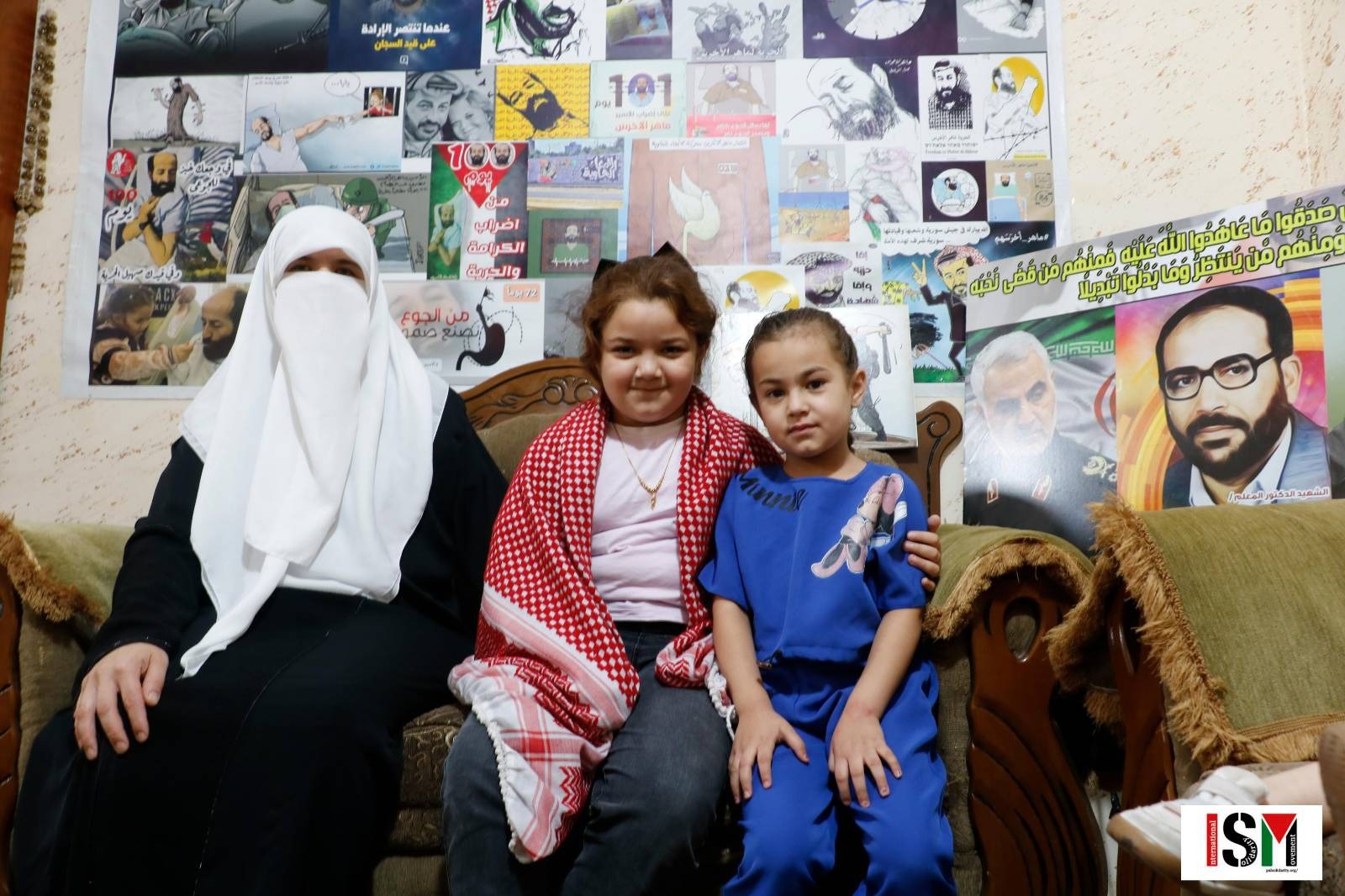Tag: Prisoner
-

Torture as a daily routine: a witness from Israeli prisons
His face is hollowed out, white skin pulled over prominent cheekbones. The eyes, tired but wide open, never stop. Abed just got out of Al-Naqab prison in southern Israel five days ago. He still can’t believe it. “I lost 60 kilos in less than a year.” He shows a giant picture of himself hanging in…
-

The voice of family members of detainees in Israeli jails
On Monday 25 November, about eighty women, mothers, sisters and wives, gathered in Nablus, in the West Bank, to demonstrate in solidarity with the nearly 100 women detained in Israeli jails, along with around 12,000 men, to demand their release and an end to the ongoing genocide in Gaza. Their family members have been in…
-

Human Rights Defender Accused of Supporting Terror
Alison Russell, a Scottish-born Belgian citizen and Human Rights Defender, was detained by the Israeli occupation authorities while documenting the demolition of a house in Masafer Yatta, in the South Hebron Hills of the occupied West Bank. She was deported after very perfunctory proceedings at the Jerusalem Magistrate’s Court.
-
An unbreakable will
“I will go on a hunger strike until I get freedom or martyrdom.” This is what the prisoner Maher Al-Akhras (52), from the village of Hajjah, Jenin district, said after the Israeli occupation forces raided his house and arrested him without charges last Thursday night, August 24. The prisoner Maher works as a farmer. He…
-
In Pictures: Palestinians murdered under Israeli occupation in 2019.
August 15 | International Solidarity Movement | Occupied Palestine

